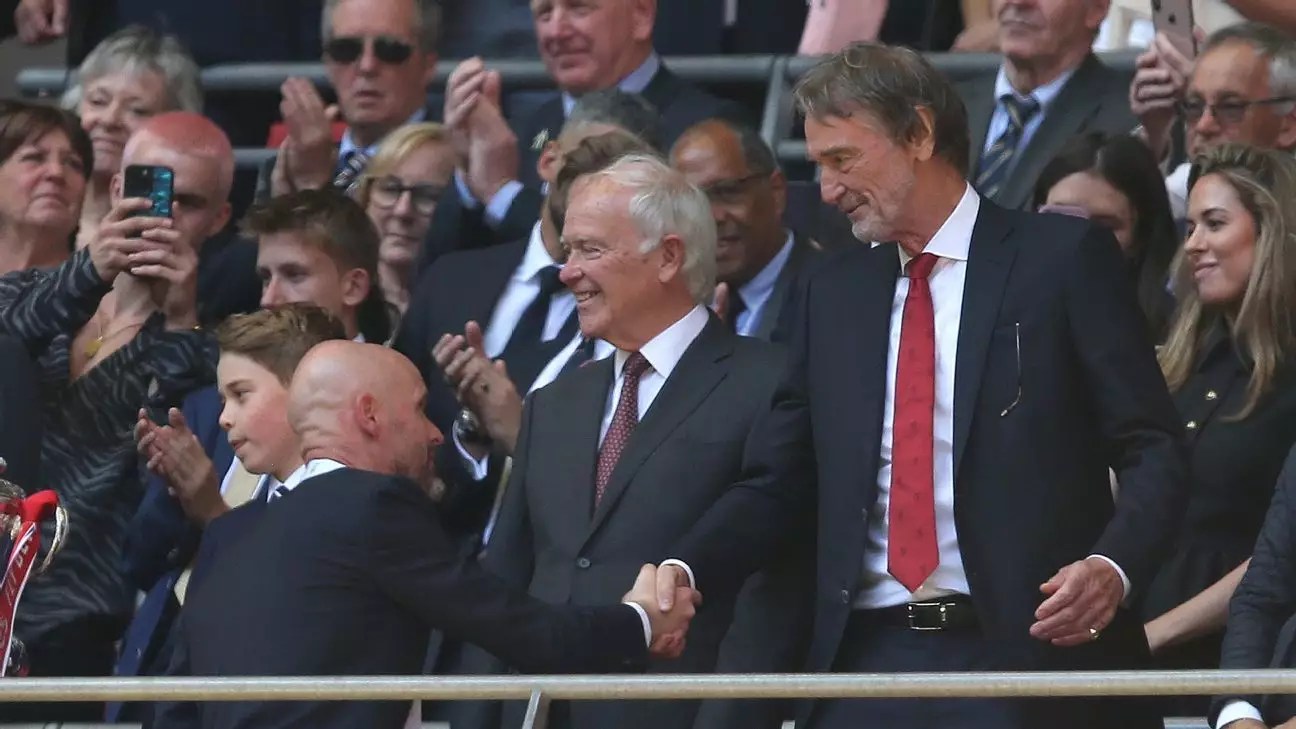The shadows looming over Manchester United are becoming increasingly evident as co-owner Sir Jim Ratcliffe expresses no guarantees regarding the future of manager Erik ten Hag. With the team currently mired in a disheartening winless streak stretching back four matches, the pressure is mounting not only on the players but also on Ten Hag himself. The upcoming match against Aston Villa represents a pivotal moment for both the team and its management. Despite Ratcliffe’s presence at Villa Park, he has made it clear that the ultimate decision concerning Ten Hag’s fate lies beyond his control, distancing himself from the managerial implications of recent performances.
Ratcliffe’s reluctance to provide assurances regarding Ten Hag’s position speaks volumes about the internal dynamics at the club. During an interview with the BBC in Barcelona, Ratcliffe acknowledged Ten Hag’s abilities as a coach but emphasized that the responsibility for decisions related to the team lies with the wider management team. This statement highlights a potential rift between the new ownership structure and the existing coaching staff, raising questions about the overall strategy and vision for the club’s future.
Since Ratcliffe’s acquisition of a significant 27.7% stake in Manchester United earlier this year, there have been notable shifts in the club’s management framework. The appointments of Omar Berrada as CEO, alongside Dan Ashworth and Jason Wilcox as sporting and technical directors, respectively, mark a strategic overhaul aimed at revitalizing the organization. However, the fact that Ten Hag’s contract was extended prior to the arrival of these key figures complicates the situation. Ratcliffe’s comments indicate that Berrada and Ashworth have inherited a set of circumstances they did not shape, thus complicating the assessment of Ten Hag’s performance.
“Assembling a cohesive management team is crucial,” Ratcliffe remarked regarding their grouping that began functioning only in the summer. This trio has yet to collaborate meaningfully over an extended timeframe, suggesting a level of inconsistency and uncertainty in decision-making processes, particularly in evaluating Ten Hag’s contributions. It appears the club’s leadership is still in its infancy, grappling with the implications of their new roles amid pressing expectations from fans and stakeholders alike.
The overarching goal articulated by Ratcliffe is one of restoration—bringing Manchester United back to its rightful place in the football hierarchy. However, this ambition struggles against the realities of poor performances and managerial instability. While Ratcliffe seeks to unify and direct the club’s ambitions effectively, the immediate challenges posed by the team’s lack of victories may impede their long-term vision unless decisive and cohesive action is taken.
The situation at Manchester United is undoubtedly precarious, with Ten Hag’s position under scrutiny and a management team still finding its footing. As the club navigates this turbulent phase, the ability of its leaders to make united decisions will determine not only the fate of the current manager but the broader direction of the club itself. Only time will tell whether they can align their strategies and restore Manchester United to its former glory.


Leave a Reply